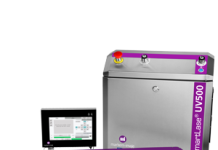Amine Djouahra, B2B business unit director Canon Central and North Africa, writes that Africa, with its dynamic and rapidly growing economies, is experiencing a significant digital transformation, driven by innovative technologies and a burgeoning entrepreneurial spirit.
However, the challenge remains: how to effectively bridge the gap between traditional physical workflows and modern digital systems to enhance productivity and efficiency across the workforce.
In an increasingly interconnected world, the integration of physical and digital workflows is becoming crucial for businesses across the globe, and Africa is no exception.
Over the past few years, working patterns have changed rapidly. Today, employers are managing a more remote and ‘nomadic’ workforce, leaning on advanced technology to facilitate ongoing demands to switch between remote, in-office, and coworking environments. How organisations collaborate and manage information has evolved as employees now have the flexibility to choose how and where they work. Organisations must maintain an information and document-sharing infrastructure that is effective within the office and beyond. This ensures that productivity is not compromised, regardless of where employees work from.
Despite the tools available to make this a reality, document management and access are not as seamless and efficient as they should be for many African organisations. This suggests a disconnect between the perceptions of IT teams and the day-to-day realities faced by employees. Closing this knowledge gap is an important part of driving progress towards meeting business objectives in the long term, rather than hindering them.
Adapting To A Flexible Work Environment In Africa
As employees continue to adapt to various work environments, IT decision-makers must acknowledge that a modern, efficient workstream enables employees to access any type of document, whether in paper or digital form, from any location. This is particularly relevant in the African continent, where the digital economy is rapidly evolving.
Pairing Paper With Digital
Document digitisation is a key enabler of remote work, providing employees access to everything they need to perform their roles. This improves efficiency and empowers employers with more control over who can access documents at any stage of the process.
Despite its advantages, a digital-only approach can pose significant challenges for employees who need to handle physical documents as part of their roles. This is particularly relevant in Africa, where the digital divide and infrastructural challenges can exacerbate these issues.
Businesses are therefore faced with the challenge of bridging paper and digital workflows for a significant portion of their workforce. To support the longevity of flexible working strategies for employees, decision-makers must evaluate how their hardware and software integrate to create a seamless experience for workers.
Driving Efficient And Secure Electronic Document Sharing
Despite early predictions about entirely paperless offices, many businesses in Africa still require paper-based communications with customers, staff or third parties. Therefore, it’s unlikely that businesses will eradicate their need for paper in the future.
Research conducted by Keypoint Intelligence found that many existing business processes are predominantly handled with paper but still require quick and easy transitions from paper to digital workflows. As a result, many IT decision-makers plan to incorporate scanning technology into businesses.
In the African context, the technology sector is changing rapidly. For instance, Gartner has identified four technology trends that may impact African IT enterprise decision-making, including federated buying, product-led growth, digital marketplaces and Metaverse technologies.
These trends highlight the need for African IT decision-makers to adapt and transform their strategies to meet the changing needs of their organisations and the broader market. This includes recognising the ongoing role of paper-based processes and the need for efficient transitions from paper to digital workflows.
Managing Document Software
Beyond hardware, there is a wide variety of document management software available to businesses in Africa to help streamline collaboration among remote employees. Choosing the right capabilities that will maintain smooth and productive operations depends on the needs of each individual business.
For example, some systems cater to enterprises looking to digitise processes that were previously only carried out physically. Others may wish to use both paper and digital document sharing for collaboration and have more control over access rights.
Due to the wide array of choices, it’s vital that businesses carefully assess the options available to ensure that a document management system will make the working lives of employees easier. This is essential in Africa where diverse working environments and connectivity challenges necessitate robust solutions.
Enhancing Productivity And Collaboration
A flexible document management system enhances productivity and collaboration by ensuring that employees can access and share information quickly and securely, regardless of their location. For instance, remote workers in remote regions can easily scan and upload documents to a central system, making them instantly available to colleagues in urban offices. This seamless integration of physical and digital workflows eliminates delays and improves overall efficiency.
Document management is a strategic imperative for African businesses seeking to enhance their operational efficiency and support remote work. By using advanced document management solutions and overcoming implementation challenges, businesses can significantly improve their information-sharing capabilities. This not only enhances day-to-day operations but also positions local businesses for sustained growth and success on the continent and beyond. Those businesses that successfully bridge the gap between physical and digital workflows will be better equipped to meet evolving business and employee needs.
CANON CENTRAL AND NORTH AFRICA
https://www.canon-cna.com





















